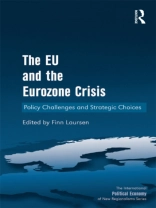The global financial crisis, which started in the United States in 2007, spread to Europe in 2009. It especially hit Portugal, Ireland, Italy, Greece, and Spain, countries which have introduced the single currency, the euro. These eurozone countries no longer have monetary policy autonomy, so they do not have the option of devaluation to increase competitiveness. The crisis has shown that the Economic and Monetary Union (EMU) created in 1993, and which led to the single currency in 1999, is faulty. Its built-in asymmetry, with centralised monetary policy and decentralised fiscal policy, should be expected to create problems. Part of the response to the crisis so far has been incremental moves towards fiscal and banking union, which will mean a deepening of European integration at a time when many observers believed that a certain equilibrium had been reached after the entry into force of the Lisbon Treaty in 2009. This book focuses on these developments as well as analysing other economic policies that affect the general economic welfare of the EU, including agriculture, trade and immigration policies. The book puts the eurozone crisis into the wider context of deepening and widening.
Finn Laursen
EU and the Eurozone Crisis [EPUB ebook]
Policy Challenges and Strategic Choices
EU and the Eurozone Crisis [EPUB ebook]
Policy Challenges and Strategic Choices
Cumpărați această carte electronică și primiți încă 1 GRATUIT!
Limba Engleză ● Format EPUB ● Pagini 242 ● ISBN 9781317033516 ● Editura Taylor and Francis ● Publicat 2016 ● Descărcabil 3 ori ● Valută EUR ● ID 4851150 ● Protecție împotriva copiilor Adobe DRM
Necesită un cititor de ebook capabil de DRM












